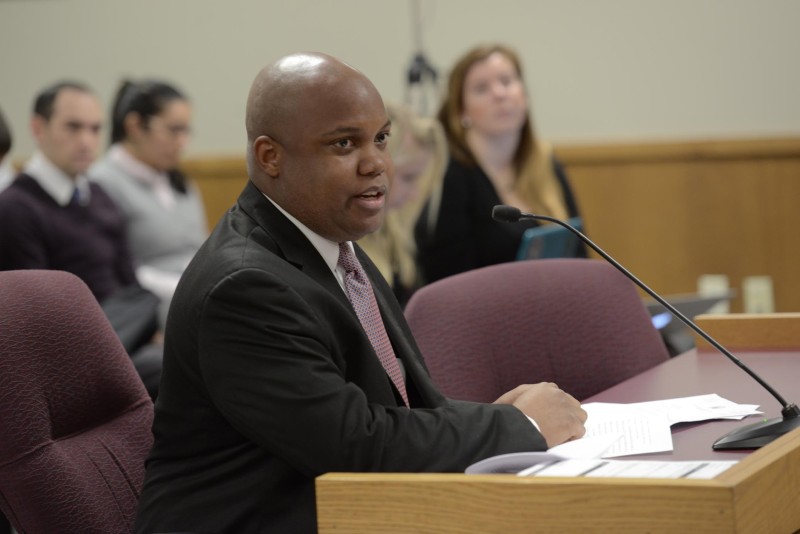There are no cure-alls, but there are positive steps we can take to address the deepening unrest.
By Shamed Dogan
I’m pro–Second Amendment. I’m pro–law enforcement. And I’m pro-black. After the deaths of two black men at the hands of police, and the subsequent spate of deadly ambushes on police officers in at least four states (including a non-fatal ambush less than a mile from my home), far too many extremists on the left and right have acted as if these are opposing positions. They have seized on the violence to fan the flames of resentment.

The far Left tells people like me that in order to be pro-black, we need to support gun control and be wary of praising law enforcement. The far Right tells people like me that in order to be pro–law enforcement, we need to condemn Black Lives Matter and President Obama, and avoid criticizing police misconduct.
Neither path will stop the madness.
To heal America’s racial wounds, ease the escalating tensions, and end the violence, conservatives must lead the way on reforms that are both pro-black and pro–law enforcement, and do not entail curbing Second Amendment rights. These are reforms that have been promoted by many conservative intellectuals and elected officials, and should garner bipartisan support. There are no panaceas for the evil that runs through the human heart, but there are positive steps still to be taken:
- End for-profit policing and reform civil-asset forfeiture
One of the key reforms enacted in Missouri, where I am a state legislator, following 2014’s unrest in Ferguson addressed the problem of policing for profit, which had led to much of the distrust of police in that community. The Republican-dominated legislature passed, and our Democratic governor signed, a law to limit the fines and revenues that cities can collect from traffic violations, in order to ensure that law enforcement is used for public safety rather than as a replacement revenue stream for cash-strapped local governments. Other states would do well to study Missouri’s example.
Another idea that has been championed by groups on the left and right is civil-asset-forfeiture reform. Federal law and statutes in 35 states give police the power to seize cash and other property from citizens even if they aren’t charged with a crime. These laws almost always include arduous hurdles that essentially force people to prove that their property wasn’t obtained illegally in order to get it back. As with traffic fines, civil-asset forfeiture causes too many people’s lives and treasure to be put at risk for the sake of increasing government revenues. Ending the practice is the conservative thing to do, and the right thing, too.
- Improve police training, reform police unions, and increase police pay
You don’t need to have a strong opinion on the shootings of Philando Castile and Alton Sterling to believe that police training must be improved. In the short term, there needs to be a renewed focus on de-escalating conflict and avoiding deadly force whenever possible. But in the long term, police unions, like other public-sector unions, need to be challenged so that discipline and dismissal for misconduct or poor performance becomes the norm, rather than the exception. (On a related note, conservatives should stop suggesting that if minorities keep complaining about law enforcement, police should stop patrolling their neighborhoods. Those of us who revere President Reagan for firing striking air-traffic controllers should abhor the idea that people might be deprived of vital public services by striking public employees.)
Taking on police unions should not preclude us from addressing a real problem that they have yet to solve: As much as our society talks about the importance of law enforcement, officers just starting out their careers are too often compensated at fast-food wages. We need to put our money where our mouths are and boost pay for law enforcement, both as an acknowledgment of the stress and danger of the profession and as an incentive for more talented people to enter it.
- Require outside investigations into officer-involved deaths
Thanks to the efforts of Michael Bell, a retired Air Force lieutenant colonel whose son was shot by police, Wisconsin’s Republican legislature passed a ground-breaking law in 2014 that requires independent criminal investigations into officer-involved deaths. With proceeds from a $1.75 million wrongful-death settlement, Bell led a statewide campaign with the slogan “When Police Kill, Should They Judge Themselves?” and was able to get law enforcement’s support for the bill. Since its enactment two years ago, the law has increased public trust of law enforcement in Wisconsin and quelled protests based on the assumption that officers would be cleared of wrongdoing no matter what. States around the country should follow Wisconsin’s lead.
- Rethink the War on Pot
At a time when murders are increasing in many of America’s largest cities, heroin and other opiates are ravaging many communities with addiction and fatal overdoses, and half of our states have legalized marijuana for either recreational or medicinal purposes, why on earth is our country still spending more time and money arresting people for marijuana than for any other drug? One need not agree withNational Review’s longstanding support for full marijuana legalization to support measures such as decriminalization and the diversion of scarce police resources to harder drugs. Enabling law enforcement to focus more on violent crime and alleviating the racial injustices involved with the War on Pot would be good for everyone.
- Acknowledge and address racial profiling
Conservatives have long been exasperated by President Obama’s refusal to utter the words “radical Islamic terrorism,” recognizing that the first step in combating a problem is to properly identify it. Black Americans feel the same way about the refusal of many white Americans to utter the words “racial profiling.” Those who insist that blacks have nothing to complain about lose all credibility in the black community, and thus find their warnings about the moral and social ills that black Americans face falling on deaf ears. Here in Missouri, we have conducted a yearly analysis of traffic stops broken down by race since 2000. The data show that blacks are more likely than whites to be stopped, arrested, and searched compared to their proportion of the state’s population, but are actually less likely than whites to be in possession of contraband when searched. States should be encouraged to collect this type of data in order to identify problematic agencies and officers, and to praise the overwhelming majority of police who conduct their jobs professionally and in an unbiased manner.
Nothing will change if we can’t provide assurances to law enforcement that their service and sacrifices are valued, and that they won’t be inordinately criticized for performing their extremely dangerous jobs. Nor will anything change unless we can provide assurances to the black community that they will receive fair treatment from law enforcement and that there will be consequences for police misconduct. I’m committed to doing my part in this difficult work as a conservative leader in my home state. I’m honored to work with organizations and individuals on the left and the right who can say the same. Now more than ever, we must come together to heal and tackle our society’s longstanding ills.



